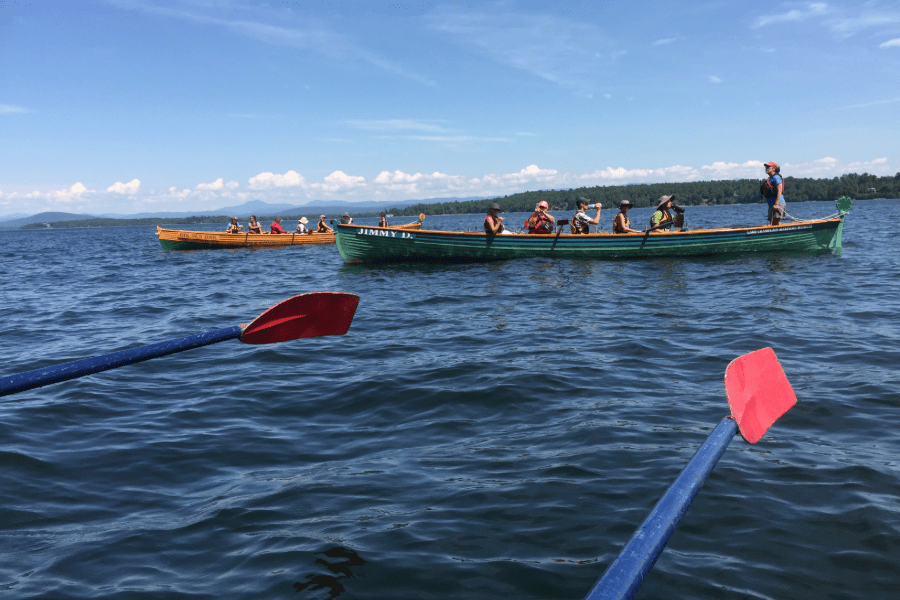Removing Barriers to Lake Education

Lake Champlain Maritime Museum (LCMM) is continuing to remove barriers to access, an initiative begun in 2021.
With the support of LCBP funding, the Museum will continue to offer free admission and pay-what-you-can camps and expeditions, two programs that have proven successful in recent years. In addition, LCMM will implement new multilingual visitor materials and expanded on-site, hands-on science and lake ecology programming for all visitors to the museum.
When the Museum opened its doors for free in 2021, visitation increased by 30 percent. The jump in visitors held steady through 2022. For young people and families living in rural, low-income communities of Addison County, Vermont and Essex County, New York, the admission price of 10-15 dollars per person prior to 2021 had been a significant barrier to accessing the Museum’s rich educational offerings. With funding support, the Museum is now better able to connect meaningfully with residents and visitors to the South Lake region.
In 2022, the Museum implemented a pay-what-you-can model for day camps and overnight expeditions, programs that have been in place for decades and offer enriching educational and problem-solving experiences to young people. During the first season of pay-what-you-can pricing, over 71 percent of participants opted for free or reduced tuition and the Museum noted that student cohorts were more socioeconomically and racially diverse than in years past.
Two new programs will begin in 2024 and build on the Museum’s achievements in improving access. To better reach the largely Spanish-speaking migrant farmworker community in the South Lake region, as well as French-Canadian visitors, LCMM will translate visitor materials associated with the Lake Health exhibit, as well as camp and expedition registration information, into both Spanish and French.
This year, the Museum is also developing new hands-on programming with a focus on human impacts to the Lake Champlain watershed. Examples include cyanobacteria testing demonstrations, climate change discussions, and guided interpretation of road salt and phosphorus pollution reduction. LCMM also plans to offer several “underwater” tours using Remotely Operated Vehicle (ROV) technology. Participants on these tours will be able to see what is beneath the water from the deck of a boat. Finally, three special programs featuring scientists, authors, and conservation practitioners will be offered to the public. Significantly, all on-site programming will be offered for free or using the pay-what-you-can model.
With its lakefront campus and enriching educational programs, the Lake Champlain Maritime Museum continues to be an important resource for our region’s residents and visitors alike. The LCBP is thrilled to support the work of expanding access to all the Museum has to offer.